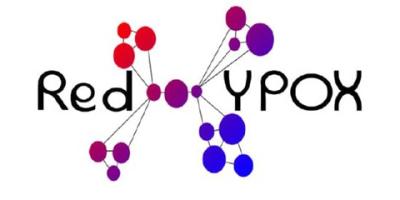MitoPhenomics Lab
MitoPhenomics lab's overarching aim is to understand the role of mitochondrial phenotypic variation in metabolism and cell signaling in health and disease. Our long-term objective is to build and perform a full genotype-phenotype of the mitochondrial variability as well as to functionally characterize the genes and pathways involved in these biological processes and find biomarkers and new farmaco-genomic treatments. These findings will advance our understanding of metabolic control in response to mtDNA variation with clinical implications in mitochondrial rare disorders as well as common diseases. For achieving this we combine genetics (clinical and population) and bioenergetics with multi-omics approaches in cell biology, animal models, and population cohorts.
Research Lines
Identify new mechanisms and novel targets involved in mitochondrial disease:
Mitochondria are vital organelles that coordinate cell metabolism, immune system functioning, epigenetic regulation, and the differentiation capacity of stem cells. Mitochondrial function is closely regulated by communication between the two cellular genomes, the mitochondrial genome (mtDNA) and the nuclear genome (nDNA). Pathological mutations in these genomes, which affect mitochondrial function, cause a group of rare diseases (1: 5000 individuals) known as mitochondrial diseases. However, even with the same pathological variant, there is a great variability in the penetrance of these diseases in each individual, which suggests the existence of a complex system that does not necessarily imply the dysfunction of the energy synthesis. Recent observations by our, and other laboratories, have revealed the existence of a relationship between mitochondrial dysfunction, the activation of the stress responses (SRs) and the response to hypoxia (HRE) in the penetrance of these pathologies. However, the exact underlying molecular mechanisms are unknown. Therefore, our objectives are to unravel how SRs, HRE and other yet undiscovered cellular signaling responses cause mitochondrial disease (nDNA and mtDNA). We aim at identifying new signaling pathways and specific metabolites for each variant (and mitochondrial complex) and integrate the genetic and bioenergetic information with the obtained phenomic profile.
Understanding the role of mtDNA variation on oncogenesis:
Maternally inherited variants of mitochondrial DNA (mtDNA) have been associated with the risk of developing several cancers but the underlying mechanisms are not understood. Our preliminary data has shown how mtDNA population sequences regulate carcinogenesis in vivo and cell migration in vitro. Furthermore, our in vitro studies revealed that these variants regulate mTORC1, HIF1a and EI2FA to elicit a complex signaling program involving mitochondrial biogenesis and mitochondrial supercomplexes formation, autophagy, modulation of cytoplasmic reactive oxygen species levels, cell growth and migration. However, whether there is a link between the differential activation of these pathways and the oncogenesis capacity observed in vivo is yet unknown. In order to answer this question and understand how mtDNA elicits oncogenesis, we will combine in vivo (xenograft and orthographs) and in vitro (spheroid/organoid and cell culture) on different models using different mtDNA backgrounds on osteosarcoma and lung carcinoma cells. We expect to unravel the molecular mechanism by which mtDNA background regulates lung cancer formation while investigating their possible role in metastasis formation. As a corollary, we aim to point to the mtDNA genetic background as a new target for personalized medicine in cancer.
Members
Selected publications
p38 MAPK priming boosts VSMC proliferation and arteriogenesis by promoting PGC1α-dependent mitochondrial dynamics.
Single-molecule mitochondrial DNA sequencing shows no evidence of CpG methylation in human cells and tissues.
Mitochondrial DNA variants modulate N-formylmethionine, proteostasis and risk of late-onset human diseases.
An atlas of mitochondrial DNA genotype-phenotype associations in the UK Biobank.
Oxygen tension modulates the mitochondrial genetic bottleneck and influences the segregation of a heteroplasmic mtDNA variant in vitro.


